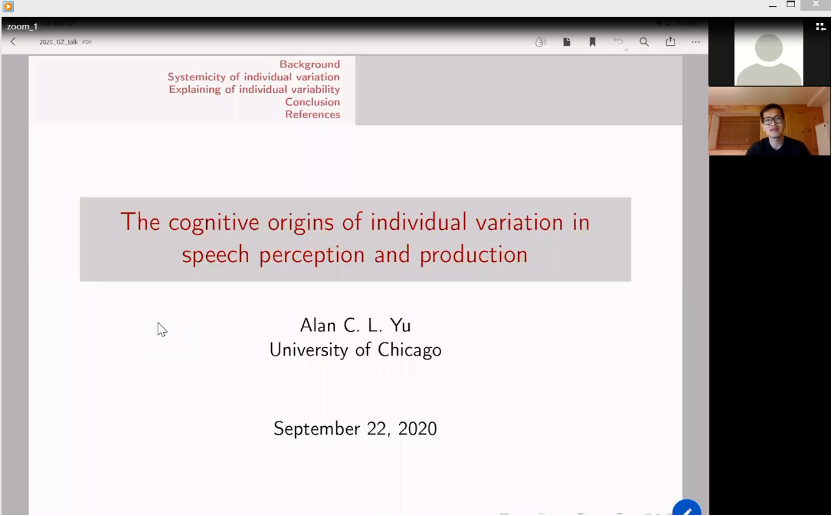On September 23rd, 2020, Professor Alan Yu from the University of Chicago was invited to give a talk entitled “The cognitive origins of individual variation in speech perception and production”. This talk was given on Zoom and was hosted by the Bilingual Cognition and Development Lab and the Research Center for Linguistics and Applied Linguistics. The talk was well-received, attended by 110 researchers, teachers and students in and outside of Guangdong University of Foreign Studies.
Professor Alan Yu first demonstrated the processing patterns of the English consonant /s/ embedded in different vocalic contexts to reveal the relationship between coarticulation and perceptual compensation. He argued that the relationship suggested systematic inter-speaker variability. He then explored the potential cognitive sources for the variability by investigating how this variability was associated with different degrees of autistic-like traits in speakers. Using a series of experiments, he showed that speaker’s coarticulation was more likely to be listen-oriented than speaker-oriented, while the perception of coarticulation may rely on integration of contextual information. The variability in the perception and production of coarticulation might result from variations in autistic-like traits (particularly regarding theory of mind) in the speakers.

In the talk, Professor Alan Yu highlighted the role of cognitive individual differences in explaining variations in speech processing and sound change. Speakers of the same language might not share the same phonological grammar. Instead, their speech may show systematic variations that may be learned rather than innate. This has implications for sound change and language development.
The talk provided a novel perspective on how individual differences in cognitive processing can account for variability in speech perception and production. It inspired a heated discussion on the related issues and future directions among the audience.
